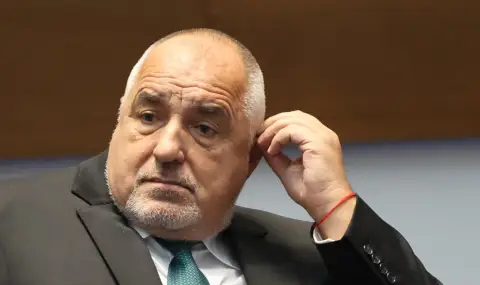Comment by Veselin Stoynev:
We are heading towards a minority cabinet or early elections. The negotiations to form a governing majority and a regular government began with little hope of ending successfully and will most likely end with a result that is zero for the main negotiating parties.
What happened before the final
After GERB terminated the negotiations in absentia, each party tried to make maximum efforts to maintain the spirit of dialogue. The mandate holders did not curse “Democratic Bulgaria“ for rejecting them from Rosen Zhelyazkov as prime minister. The DB, on the other hand, limited themselves to their bewilderment that they had learned from the media about the termination of the negotiations. The ITN refrained from their typical sarcastic comments, and the BSP did not cry over their burning desire to return to power.
And at the meeting of the parliamentary legal committee on Tuesday, everyone unanimously adopted bills for amendments to the Judiciary Act, which would thwart the election of Borislav Sarafov as prosecutor general. Despite the unanimity, the DB was demonstratively placed “in the queue” of the coalition partners from GERB and ITN, nothing, although he was the main negotiator, and his wish for the changes to the Law on the Judiciary to be the first item on the agenda, but the last, was not satisfied.
At the same time, on the finance committee, the representative of the DB voted together with GERB - and against the position of his coalition partner “We Continue the Change”, - to extend last year's budget, and not to review and amend the draft budget of the caretaker cabinet for 2025. This made it quite obvious that the DB is much more like-minded with GERB on budget and fiscal policy than with the PP, as well as on the understanding that only a regular government with a clear parliamentary majority behind it can be responsible for it.
Sarafov or cabinet
On Wednesday morning, GERB announced online that it was renewing negotiations only with the ITN and the BSP, and the DB could join only if it supported Rosen Zhelyazkov for prime minister. The DB responded with a press release that their initial position was that the composition of the cabinet should be discussed at a leaders' meeting only after a final agreement on the management agreement and called on GERB not to turn the rule of law into a bargaining chip for the cabinet by delaying the vote on the changes to the Judiciary Act. Thus, the election of the Prosecutor General even at the very end turned out to be a major stumbling block in the negotiations. And DB remained alone in its position that the prime minister should not be a bright political figure and should be a mutually acceptable candidate.
Both GERB and PP-DB benefited from the quadruple coalition
Unlike BSP and ITN, which can only gain from participating in power anyway, but lose nothing if they do not participate, for GERB and PP-DB, the failure of a quadruple governing majority brings much more harm. In addition to not meeting the desire of the majority of citizens for regular power and accumulating liabilities from continued political instability, both formations also suffer narrow-party strategic damage.
GERB at the head of a quadruple coalition has the chance to reduce its dependence on Delyan Peevski, even through a slower and more careful limitation of his influence in the judiciary and regulators, as well as in its own parliamentary group. DB can achieve, with smaller and slower steps, at least part of what it failed to achieve with the obstruction of judicial reform and the failure of the rotation in the Denkov-Gabriel government. The two formations in an otherwise ugly four-party government can at least temporarily stabilize the political situation and solve the accumulated current problems that cannot be solved without regular power and a secured parliamentary majority.
Do not create a strong opposition on your own
If we go to elections or GERB forms a minority cabinet with only BSP and ITN (with passive support from entire groups or individual MPs from other parties), Boyko Borisov will definitively establish himself as dependent on Peevski. He will consolidate PP-DB against himself, which were largely divided, and will solidify them as a strong opposition. Which will give them a much better start in the next elections, regardless of whether they stay together, and regardless of whether the elections are immediately or later, after a short-lived minority government.
In the next elections, regardless of whether it wins more or less, GERB will again find itself alone with a possibly even stronger Peevski, but it will not be able to have PP-DB or just DB as partners, which are absolutely necessary for its legitimacy to govern. Even if it forms a comfortable majority with the New Beginning and/or other formations, it will have a strong, including loud, grassroots opposition against it.
Borisov to follow Todor Zhivkov
And if it cannot choose between a quadruple coalition - against Peevski, a minority cabinet - because of Peevski, or early elections - with Peevski, Borisov also has a completely unconventional option to ensure governance. The joke is quite appropriate at a time when world politics is turning into a sinister comedy: if Greenland and Canada do not want to voluntarily become part of the USA, Borisov should propose that Bulgaria become the 51st state. Thus, Borisov will surpass his teacher Todor Zhivkov (whom he admits was like a university to him), who failed to turn Bulgaria into the 16th Soviet republic.
